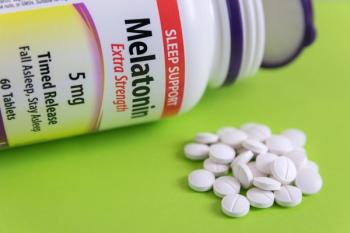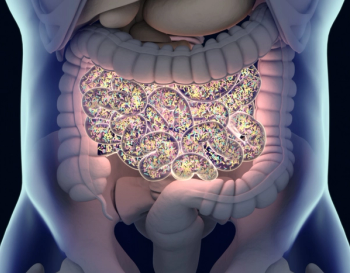
Infliximab-dyyb (Zymfentra; Celltrion USA) is a subcutaneous treatment for the maintenance treatment of adults with moderately to severely active ulcerative colitis and Crohn disease.

Infliximab-dyyb (Zymfentra; Celltrion USA) is a subcutaneous treatment for the maintenance treatment of adults with moderately to severely active ulcerative colitis and Crohn disease.

Additional research is needed to further evaluate whether adequate emotional support is linked to improvements in health-related quality of life in adults diagnosed with other cancer.

New innovations are revolutionizing diagnostics and optimizing treatment outcomes, marking significant strides in the fight against digestive diseases.

Social jet lag could create adverse health impacts that a 90-minute difference in the mid-point of sleep can improve.

For many patients with C diff, the experience of medical gaslighting is a common one because many health care providers lack education and familiarity with the disease.

Therapeutic drug monitoring is a growing and vital area for pharmacists to become involved in to increase patient success with inflammatory bowel disease remission.

Data show these cases pose some of the most significant threats to patients and health systems.

Chronic or recurring episodes can lead to other complications.

As more becomes known about Crohn disease, treatment modalities have evolved with biologic monoclonal antibodies becoming a key part of guideline- and evidence-based medicine.

In a single-center study, investigators reviewed charts of 25 children with inflammatory bowel disease transitioning from infliximab to the biosimilar infliximab-dyyb for maintenance.

In clinical trials of patients with Crohn disease, upadacitinib demonstrated early and long-term symptom relief, as well a visible reduction of damage to the intestinal lining caused by excess inflammation.

The sleep hormone decreased intestinal homeostasis, which may augment inflammation that causes tissue and intestinal damage.

As patents expire, the development of biosimilars may increase, opening up new opportunities to compare efficacies of these drugs.

Shweta S. Namjoshi, MD, MPH, CNSC, discusses the role of the pharmacists in gastrointestinal care and the differences in care for pediatrics and adults.

Similarities between the symptoms of Clostridioides difficile infection and Crohn disease may cause confusion for health care providers.

The results of the INSPIRE trial demonstrated that 20.3% of individuals receiving risankizumab (Skyrizi) achieved clinical remission compared to 6.2% of individuals who received the placebo.

Different guidelines have notable differences between equivalency dosing of proton pump inhibitors (PPI), resulting in confusion and a lack of confidence between medical professionals recommending one PPI over another.

Sandoz intends to launch the latest Humira biosimilar in the United States on July 1, 2023.

Educate patients about the use of nonprescription products for digestive issues, and encourage them to seek further medical care when warrented.

Although antibiotics are an effective treatment option, evidence indicates that fecal microbiota transplant holds promise in treating refractory or recurrent C difficile infections.

A patient’s neurological symptoms diminished when he discontinued a biosimilar and started various new treatments.

Researchers found a 27% heightened risk of cardiovascular disease for individuals with celiac disease compared with those who didn’t have the condition.

Zolbetuximab treatment reduced risk of death by 25% compared to placebo.

An organ transplant is a known risk factor for C. difficile infection, however, data are lacking on how the infection affects those who underwent an intestinal transplant.

The popularity of intermittent fasting, or time-restricted eating patterns, may not help control weight as well as other dieting methods.